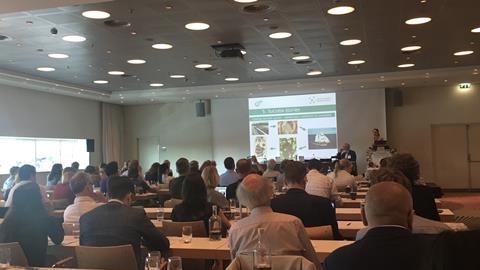This year’s conference will hear from growers making the transition to sustainable food production, highlighting the challenges and opportunities of “nature-positive” production
The Sustainable Foods Summit’s European edition takes place in Amsterdam on 15-16 June, with discussions this year centring on the challenges and opportunities of transitioning to sustainable methods of food production that promote biodiversity.
The Summit will open with a keynote on redesigning foods for circularity, the goal being to adapt production to achieve a positive outcome for nature, growers and consumer health.
“What solutions are provided by organic and regenerative agriculture?” the Summit’s organisers Ecovia Intelligence ask. “What developments are occurring with upcycling? Case studies will be given of food producers making the transition to sustainable food production.”
Approaches to move to nature-positive food production are up for discussion. “At the recent UN Biodiversity conference (COP15), 195 countries signed a historic deal to halt and reverse biodiversity loss, including to protect 30 per cent of land and water by 2030,” Ecovia stated. “Nature-positive production will play an important role in meeting this ambitious target: agriculture and food production systems that involve the protection, management and restoration of nature.”
“Sustainability is already an integral part of the food industry, with many operators setting net zero targets, investing in ethical sourcing, and green packaging materials. As biodiversity rises on the sustainability agenda, Ecovia Intelligence expects nature-positive production to take off in the coming years. Expect to see more regulations and eco-labels to reflect this trend.”
Joanna Wierzbicka, deputy director of IFOAM Organics Europe, is set to talk about the future of environmental labelling, given the confusion created by the proliferation of eco-labels, as well as debates about the methodology used by different rating schemes, and the European Commission’s plans to set limits on which eco-labels can enter the market.
“Ecovia Intelligence believes the way ahead will involve some level of harmonisation,” the organisers predicted. “A common framework for measuring impacts is required for rating schemes to be accepted by consumers. Schemes that can factor in externalities of food production, such as pesticide use, soil health, and wildlife protection, are likely to set the benchmark. Consolidation is also expected. The number of eco-labels is expected to peak in the coming years, with some schemes expected to ‘swallow up’ smaller schemes. Successful labels are likely to be those like organic which are legally protected, as well as those that have industry backing.”




